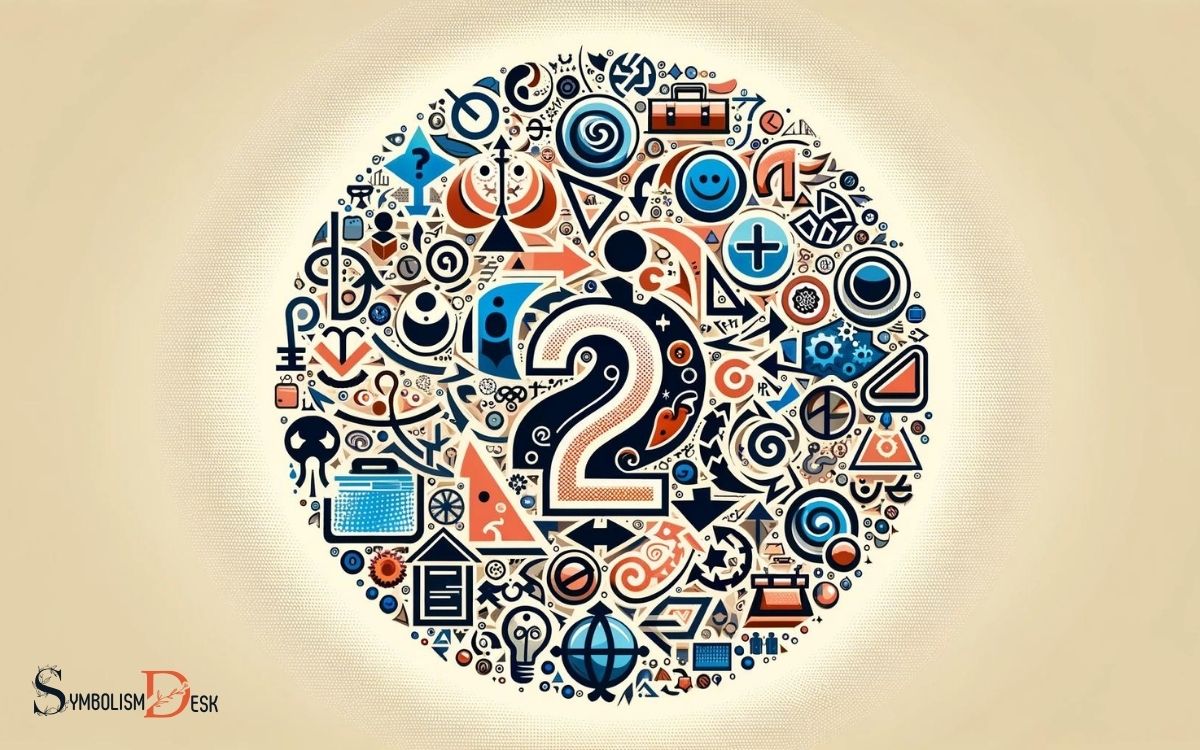Can You Change Your Name to a Symbol: Explain!
Yes, it is possible to change your name to a symbol, although the process and acceptance of such a change can vary widely based on legal systems and cultural norms.
Notable instances include the artist formerly known as Prince, who adopted an unpronounceable symbol as his name for a period of time.
The legality of changing one’s name to a symbol depends on the country’s naming laws.
In many jurisdictions, there are specific guidelines to follow, which may include:
- Filing a petition for a name change in court.
- Publishing the intended change in a local newspaper.
- -Passing a background check for fraud or evasion purposes.
For example, in the United States, while you can legally change your name to a non-alphabetic symbol, you may encounter practical difficulties with government agencies and private businesses that have systems not designed to accommodate symbols.
Adopting a symbol as a name can be a profound expression of identity, yet it may present unique challenges in everyday life.

Key Takeaway
Legal Considerations for Symbolic Names
One key legal consideration for adopting a symbolic name is ensuring that it complies with the specific requirements and regulations set forth by the relevant governmental authorities.
When choosing a symbolic name, individuals must adhere to the legal guidelines for name changes, which vary by jurisdiction.
It is essential to research and understand the legal procedures and restrictions associated with adopting a symbolic name. Some jurisdictions may have limitations on the use of symbols or may require additional documentation to support the name change.
Additionally, individuals should consider the potential impact of a symbolic name on legal documents, such as identification cards, passports, and contracts.
Seeking legal counsel can provide valuable guidance in navigating the complex legal considerations of adopting a symbolic name.
Historical Significance of Symbolic Names
The historical significance of symbolic names can be traced back to various cultures and societies throughout human history.
- In ancient Egypt, symbols were often used in the form of hieroglyphs to represent names or significant events.
- This practice reflected the importance of symbolism in their religious and cultural beliefs, as well as in their communication system.
- In Chinese culture, the use of characters and symbols in names was and still is common, with each character holding deep meaning and significance.
- This tradition is rooted in the belief that the characters used in a person’s name can influence their destiny and personality.
These historical examples highlight the enduring importance of symbolic names in different societies and the profound impact they can have on individuals and their communities.
Practical Steps to Changing Your Name to a Symbol
The transition from discussing the historical significance of symbolic names into the practical steps for changing one’s name to a symbol highlights the evolving nature of personal identity and its intersection with cultural and legal frameworks.
| Practical Steps for Changing Your Name to a Symbol | Details |
|---|---|
| Research Legal Requirements | Understand the specific laws and procedures in your jurisdiction for changing your name to a symbol. |
| Choose a Symbol | Select a symbol that holds personal significance and ensures it is unique and not already in use. |
| File a Petition | Prepare and file a petition with the appropriate court, following all required documentation and paying any necessary fees. |
| Notify Relevant Institutions | Notify government agencies, financial institutions, and other relevant entities of your name change to the chosen symbol. |
Changing one’s name to a symbol involves careful consideration of legal, cultural, and personal factors.
Impact on Personal Identity
By adopting a symbol as a name, individuals undergo a significant transformation in their personal identity, reflecting an unconventional approach to self-expression and self-identification.
This transformation can have both positive and negative impacts on an individual’s personal identity.
The impact on personal identity includes:
- Self-Expression:
- Embracing a symbol as a name allows individuals to express their uniqueness and individuality in a non-traditional manner, challenging societal norms and expectations.
- Social Perception:
- The adoption of a symbol as a name may lead to changes in how an individual is perceived by society, potentially influencing their interactions and relationships with others.
This unconventional choice can lead to a redefinition of one’s sense of self and a shift in how one is perceived by others.
Symbolic Names in Popular Culture
Symbolic names in popular culture have become a notable trend, shaping the way individuals are identified and represented in the media and entertainment industry.
From musicians like Prince, who famously changed his name to an unpronounceable symbol, to fictional characters like The Artist Formerly Known as Mousecop in the TV show ‘Brooklyn Nine-Nine’, symbolic names have made a significant impact.
These names often carry deeper meanings or serve as a form of artistic expression, challenging traditional norms of nomenclature.
In some cases, symbolic names have sparked discussions about the nature of identity and self-expression, resonating with audiences worldwide.
This trend reflects a growing desire for individuality and non-conformity, influencing how celebrities and characters are perceived and celebrated in popular culture.
Professional Ramifications of Symbolic Names
Names with symbolic connotations can pose unique challenges and considerations within professional settings. When individuals adopt symbolic names, they should be aware of the potential professional ramifications, including:
Legal and Administrative Challenges
Symbolic names may encounter legal and administrative hurdles when processing official documents, such as contracts, licenses, and payroll records. This can lead to delays and complications in professional transactions.
Perception and Communication
Symbolic names may influence how individuals are perceived in professional contexts and can impact effective communication.
Colleagues, clients, and stakeholders may have varying interpretations of a symbolic name, affecting professional relationships and interactions.
It is essential for individuals considering symbolic names to carefully evaluate these professional implications and make informed decisions that align with their career objectives.
Symbolic Names and Artistic Expression
In the context of artistic expression, the adoption of symbolic names can significantly impact an individual’s creative identity and public persona.
Symbolic names often serve as a form of artistic expression, allowing individuals to embody a particular concept, idea, or emotion through their chosen name.
These names can convey a deeper meaning or message that aligns with an artist’s work, thereby shaping the audience’s perception and understanding of their art.
For example, the musician Prince famously changed his name to an unpronounceable symbol, which became synonymous with his unique artistic identity. This bold move was not just a whimsical choice; it was a statement about his fight for creative freedom in an industry that often sought to pigeonhole him. Similarly, the recent trend of companies undergoing rebranding, like the AirPods name change explained, reflects a desire to establish a distinct identity in an ever-evolving market. These changes serve to highlight the importance of self-expression and innovation in both personal and corporate realms.
Artists may choose symbolic names to break free from societal norms, challenge conventions, or simply to align their identity with their creative pursuits.
This deliberate choice of name can become an integral part of an artist’s brand, influencing how their work is perceived and remembered.
Symbolic Names in Different Cultures
An individual’s choice of a symbolic name can hold diverse cultural significance and may vary in interpretation across different societies. In various cultures, symbolic names are used to convey specific meanings or to honor traditions.
Here are some examples:
In Chinese culture:
- Names often include characters that represent virtues, aspirations, or natural elements, reflecting the values and beliefs of the family.
- In Native American cultures:
- Names are often derived from natural elements, animals, or significant events, symbolizing a connection to nature and spirituality.
These examples illustrate how symbolic names can carry deep cultural meaning and reflect the values and traditions of a particular society.
Understanding the significance of such names in different cultures is essential for appreciating the diversity of human expression.
Conclusion
Ultimately, changing one’s name to a symbol requires careful consideration of legal, historical, and practical factors. The impact on personal identity, professional ramifications, and artistic expression must also be taken into account.
Symbolic names have a long-standing presence in popular culture and various cultures around the world. It is important to weigh the potential benefits and drawbacks before making such a significant change.






